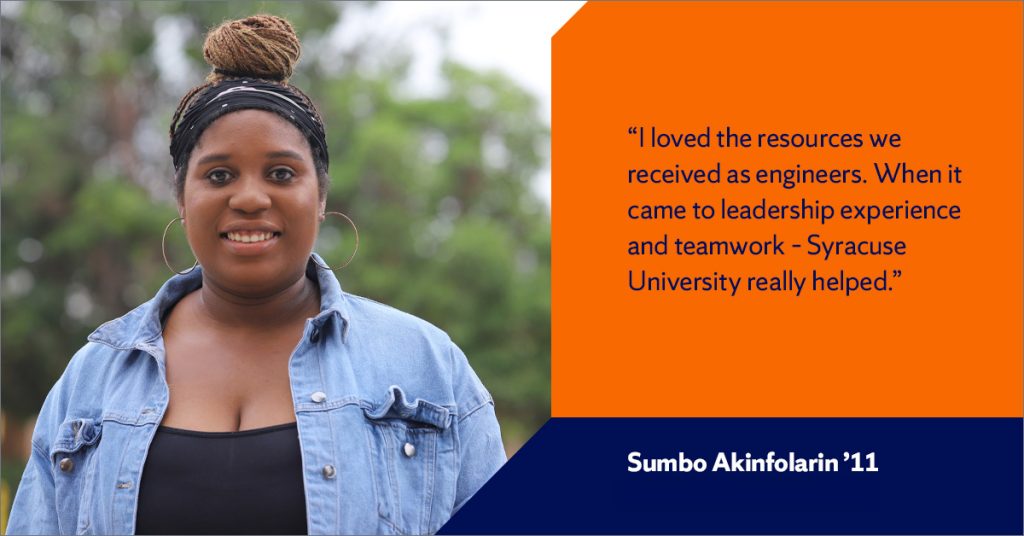
Electrical engineering is based on scientific principles governing the motion of charged particles through conductors, semiconductors, or even a vacuum. These phenomena can be harnessed in a variety of applications such as wireless, optical or satellite communications, control of robots, radio and television broadcasting, development of microelectronics for computers and analog circuits, and development of instruments that aid in the diagnosis and treatment of diseases.
The master’s program in electrical engineering emphasizes mastery of the field of knowledge and some familiarity with allied areas. It is tailored to meet the needs of the individual with certain general restrictions set by the faculty. The MSEE program consists of at least 30 credits beyond the B.S. degree. A thesis is optional. Students who do not have B.S. degrees in electrical engineering are required to take specified additional courses at the undergraduate or graduate level to make up for deficiencies in their preparation.
View program details in the University Course Catalog
Employment Outcomes
- Companies that hire our graduates: 2K, Abacus Insights, AccuGPS, Algorizin, Alibaba Inc., Amazon, Amobee, Anheuser-Busch, ANSYS Inc, Apex Systems, AppDynamics, AREL Supply, Autire Technologies, LLC, Bank of America, Bask Health, BeaconFire Inc, Berkshire Hathaway, BlueData, ByteDance, BW Papersystems, Cadence Design Systems, Capital One, Cerner Corporation, Charles Schwab & Co., Clarience Technologies, Conduent, CongruentX, Copart and Intel, Creative Cyber Management, LLC, DeepTek, Deloitte, Directlink.AI, Dyania Health, Eaton, Echostar, Ernst & Young, Epoch Times, Equinix, Essex Property Trust, FedEx Services, FEV North America, Inc., Fidelity Investments, Fiserv, Flock Freight, GCom Software, Georgia Tech Research Institute, Hewlett Packard Enterprise, Hitachi Energy, Huawei, Horison Information Strategies, Hulu, IBM, IMSG, Intel, IntraLinks, Ipsumm Inc., JMA Wireless, Key Solutions, Kinimatic, Labcorp, Legrand, LinkedIn Corporation, Little Maxima, Lockheed Martin, MITRE Corporation, NASA Jet Propulsion Lab, NetEase Games, Netskope, New York Power Authority, Northrop Grumman, Novelis, Nvidia, OmniVision Technologies, Origin AI, Pacific Gas and Electric Company, Paypal, Pefin, Pfizer, Pointel, Qorvo, Qualcomm Inc., RCP Fu7nd Services, LLC., Realtor, Riskval Financial Solutions, SAAB, Samsung, Schweitzer Engineering Laboratories (SEL), Servus Credit Union, Sigfig, Solaborate, SK Hynix Memory Solutions, SparkCharge, SRC Inc, State Grid Corporation of China, SUNY Upstate, Synopsys Inc., Tableau, Tech Enthusiast, Teledyne LeCroy, Tesla, Inc., Touchpal, Trane Technologies, Triton Bio, TruWeather Solutions, Turkish Petroleum Co., US Renal Care, Vivo Communication Technology Co. Ltd., Vmware, Walmart Global Tech, WebAI, WEX, Inc., Xignite, Inc, Xilinx, Yahoo, Zenith, Zillow
- Job location: 88% in the US, 12% outside of US
- Job location within US: 34% San Francisco Bay Area, 10% Metropolitan New York City, 8% Syracuse/Central New York, 3% Metropolitan Los Angeles, 3% Washington (Seattle), 3% Metropolitan Baltimore/Washington, DC, 2% Texas (Austin/Dallas/Houston), 32% Other
- Job titles: Net Developer, Associate Software Engineer, Electrical Product Engineer, Embedded Systems Software Engineer, Founder, iOS Developer, Java Developer, Jr. Software Engineer, MTS-2 Software Engineer, Principal Engineer, Program Engineer/ Software Engineer, Programmer Analyst, Research Engineer, RF Engineer, Systems Design Engineer, Senior Engineer, Senior Product and Applications Engineer, Senior Software Engineer, Software Developer, Software Engineer, System operator, Technology Analyst, Test Engineer
- Base salary range: less than $45,000 – $120,000 or more
- Median base salary range: $110,000 – 114,999
Student Profile
Ziqi Xu, G’19, Taiyuan, Shanxi Province
As Ziqi Xu neared the completion of her master’s in electrical engineering, she was already admitted to three top research universities for her Ph.D. education. In addition to her academic strengths and hard work, she attributes her success to Syracuse University’s supportive and friendly academic environment and several brilliant professors. When she came to SU, she was interested in the broad field of digital communications. A core course in electromagnetic fields helped her determine her long-term direction. Her future research will focus on novel techniques to further miniaturize antennas to enable faster and more efficient information transfer.
The guidance and recommendations Ziqi received from her professors at SU gave her knowledge and lifelong skills. Graduate education at the College of Engineering and Computer Science was, in her words, “an opportunity to develop my future. I learned not to depend only on professors and lecture notes. I have become a more independent learner. Now, I also can really arrange my own life.”
